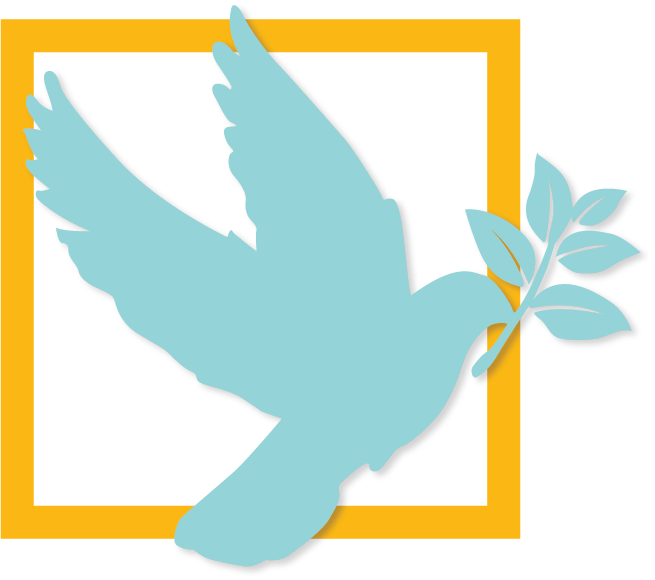WE HAVE TO STRIKE BACK
by Yohan Shanmugaratnam. Published in Norway’s Klassekampen on Saturday, 25 September 2021
Original article can be read here: https://klassekampen.no/utgave/2021-09-25/vi-er-nodt-til-a-sla-tilbake/but5When he saw soldiers torturing and killing civilians, Captain Nyi Thuta defected and joined the revolution.
WE HAVE TO STRIKE
Six months after the defection, Nyi Thuta is still referred to as "the captain." And even though it's been a long time since he's worn the uniform, Nyi Thuta still considers himself a soldier in the nation's service.
The difference is that he no longer obeys his former superiors in Tatmadaw, Myanmar's armed forces, and by far, the most powerful institution. Nyi Thuta is no longer stationed at its base in the capital Naypyidaw, but is in a secret location in Myanmar.
From there, he does his first interview with Norwegian media, on a video link with Klassekampen, at the same time as the opposition's recently declared war against the coup regime escalates.
DEFECTED AFTER THE COUP
Nyi Thuta was once a proud captain in the infantry of the Myanmar military.
“My father was a soldier, and it was a family tradition to be in the military. I considered it as my duty to serve the country, and as soon as I finished high school, I entered the military academy,” he says.
The defector is dressed in civilian clothes during the interview, with a length of hair that would have been hardly accepted if he was still in service.
By the time Nyi Thuta completed his military education in 2010, Myanmar had begun its transition to democracy, and was becoming an integral part of the international community, he points out.
It was a historic opening in a country where the military had seized control since the generals first seized power in 1962.
The National League for Democracy (NLD) secured more and more influence through several election winners.
INSIDE THE BASE IN NAYPYIDAW, NYI THUTA BEGAN TO SUFFER
What made you defect?
“I had joined the military to help defend the country and our people. But after the military coup, soldiers and police were ordered by the generals to shoot civilian protesters,” Nyi Thuta answers.
According to the Political Prisoners' Support Association (AAPP), a human rights group in Myanmar, more than 1,100 civilians have been killed since the coup.
“It has been very painful to watch. My heart was broken when I saw soldiers and police torturing and killing civilians, young people --- people we were supposed to protect,” says Nyi Thuta.
“I had to make a difficult decision. I had to leave the institution I was part of.”
DEFECTORS IN THE MINORITY
One day in March this year, just a few weeks after the coup, Nyi Thuta pretended to go to a mall in the capital. He was not on leave.
The captain never returned to the military base. Thus, he became one of more and more soldiers who have gone underground and joined the uprising. Nyi Thuta is referred to as the first defector to come forward with a name.
Why are most soldiers skeptical of doing as you do?
“There are three groups among the soldiers. The first group are people like me, who believe that what the military is doing is wrong. These are nevertheless trapped on the inside and face many obstacles, such as the concern for the family's safety,” says Nyi Thuta.
“The other group are those sitting on the fence. The latter are those that are still blindly loyal to the military,” he says.
To convince the hesitants, Nyi Thuta and others have founded a group called the People's Soldiers, which works to get more in the military to turn against the junta.
The group was created by soldiers who have defected. “We try to help those who want to do the same, for example by providing them with safe hiding places. We try to get soldiers inside convinced that the people need their courage and bravery.”
DEFENDS ARMED STRUGGLE
On September 7, the acting leader of the opposition shadow government, Duwa Lashi La, announced that a nationwide armed struggle against the regime was under way.
On the same day, 40 explosions were recorded in various places in Myanmar, according to the Armed Conflict Location and Event Data Project.
Last week, insurgents carried out a deadly attack on government soldiers in Magway. There have also been clashes in the Mandalay, as well as in states such as Shan in the northeast and Kayah in the east and in the Sagaing region in the north.
Among other things, the resistance forces have blown up more than 80 telecommunication towers belonging to the company Mytel, which is owned by the military. At the same time, underground groups have liquidated soldiers, police and informants in Yangon, the country's largest city.
The armed struggle is organized under the umbrella of the People's Defense Forces (PDF), which was founded in May. Experts claim that the force has between 20,000 and 30,000 fighters, but estimates are uncertain. In reality, PDF is a patchwork quilt of new and old guerrillas, from those who emerged after the coup, to already established militias that sprang from Myanmar's many ethnic minorities decades ago.
“We had no choice but to declare the revolutionary defense war. The military continues its brutality towards the citizens,” says Nyi Thuta.
“Our resistance forces are not like the military. We have and follow a code. Our job is to protect the people.”
Is not the fear of a protracted civil war also a reason why many do not defect?
“Some soldiers probably think so. They are worried about a long civil war. But we must remember what the cause of this war was. If the military had not carried out the coup, we would not have needed to start the revolutionary defense war. It was the rulers, the dictatorship, that caused this,” says Nyi Thuta.
RISKS THE DEATH PENALTY
For him, there is no going back anyway.
“If they arrest me, I'm going to get the death penalty. My family is not safe. So I have made a big risky decision. But we have to fight back.”
At the same time, he emphasizes that the resistance forces are trying to "avoid bloodshed as far as possible".
“It is not the war itself I want. What I want is a future, a better future for my country.
But you are in the minority?
“Yes, that's right. We are few compared to Tatmadaw. But Myanmar has many armed ethnic groups, and if we manage to rally behind a common goal, I think our combined strength will surpass the military,” says Nyi Thuta.
“Then we will not only be able to attack, but remove them.”
People’s Soldiers was founded by national soldiers of Myanmar, who joined the revolution to stand with the people. People’s Soldiers aim is to help other national soldiers defect, and to support the brave national soldiers who have defected. We provide transport, housing, living, health expenses, IT and language training to defectors. We also advocate for the public to support the defections campaign, including by holding weekly discussions streamed-live on our Facebook. 


